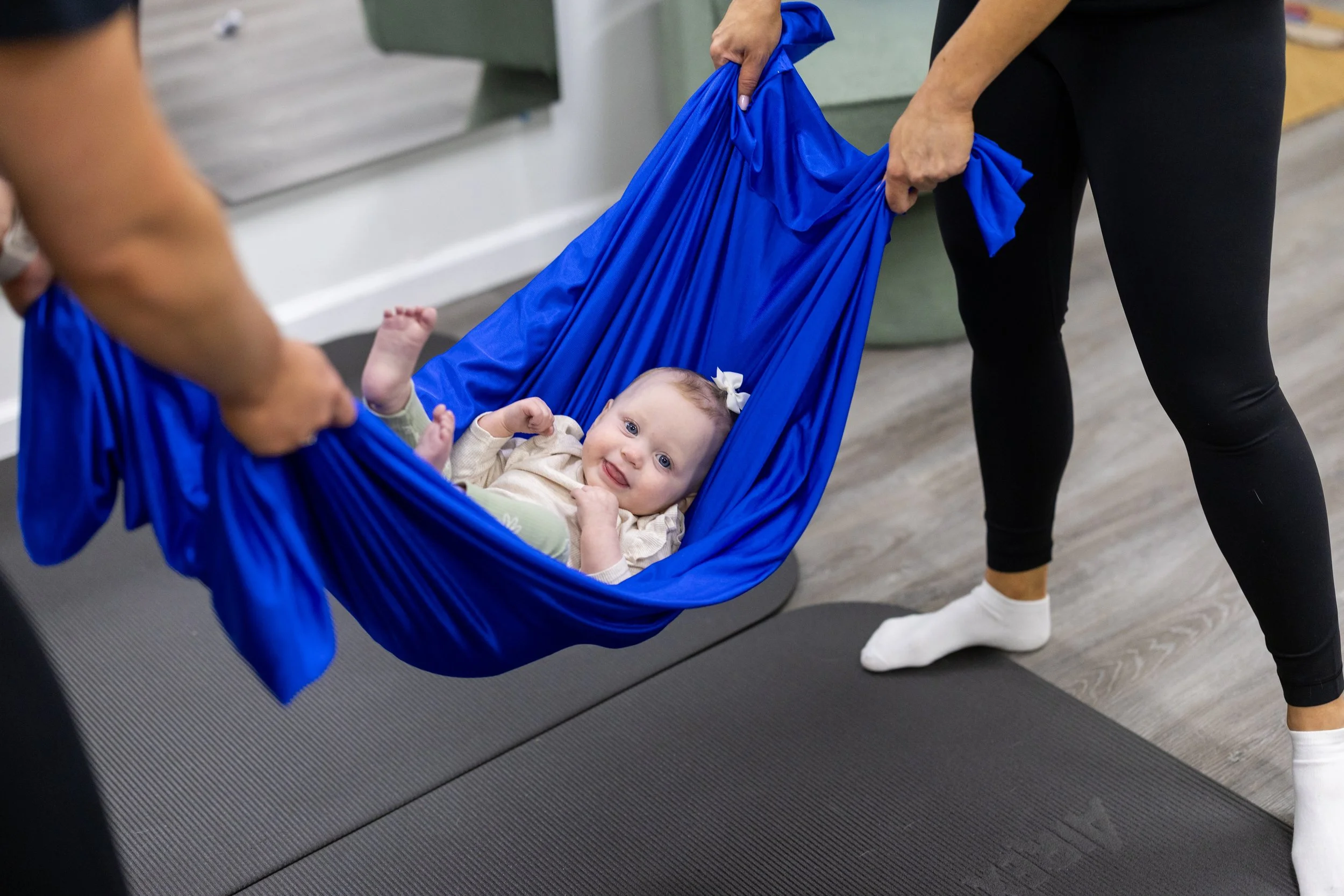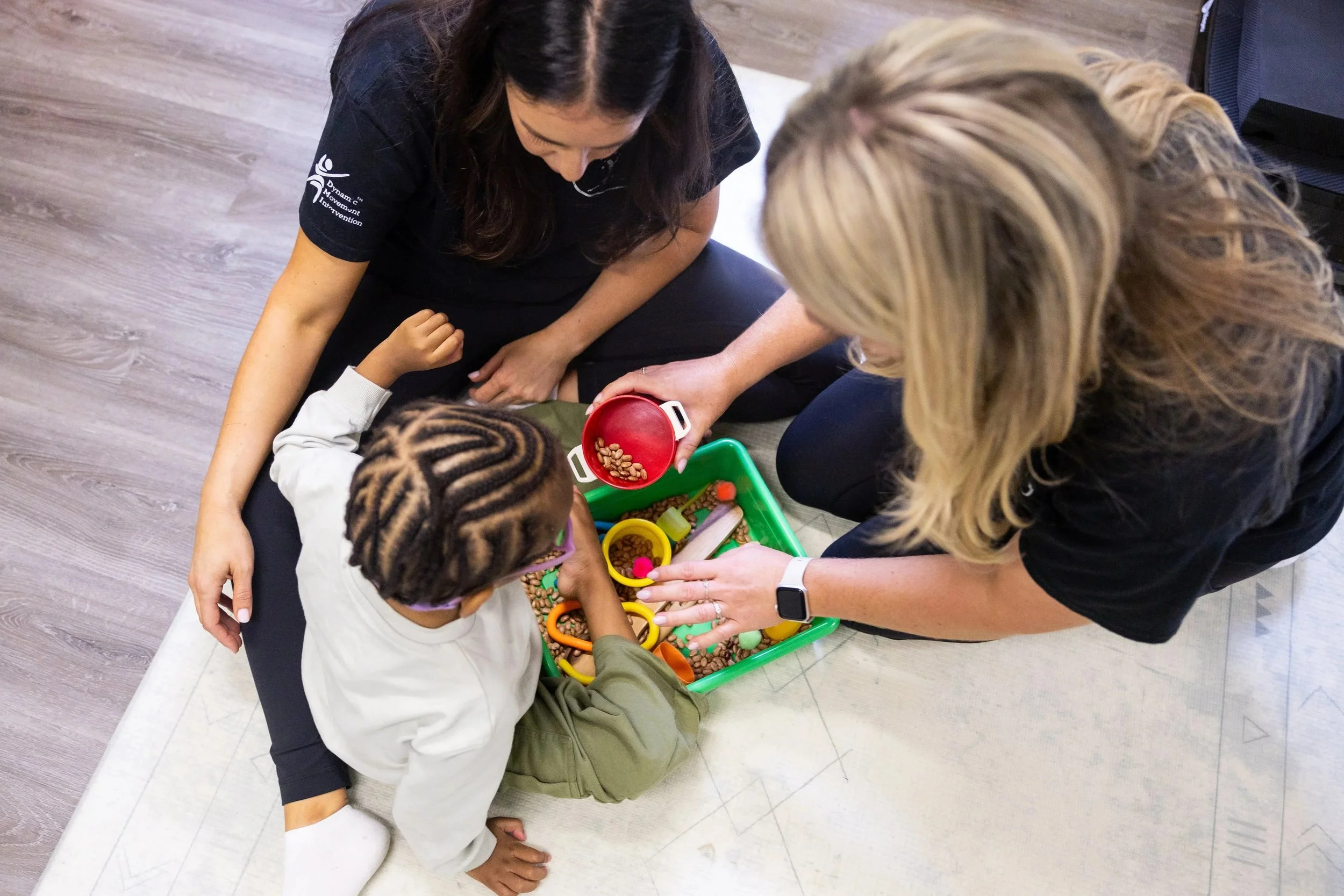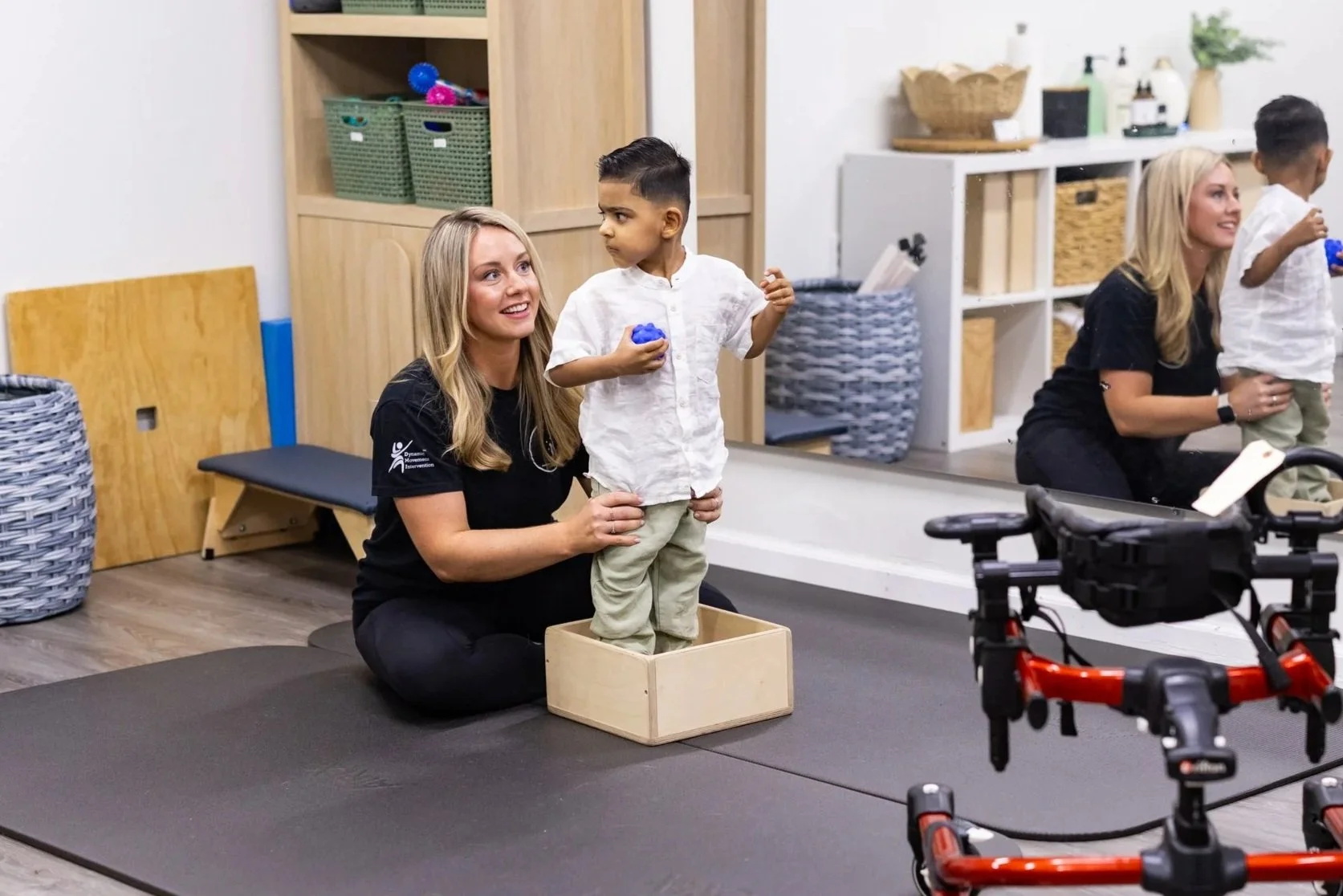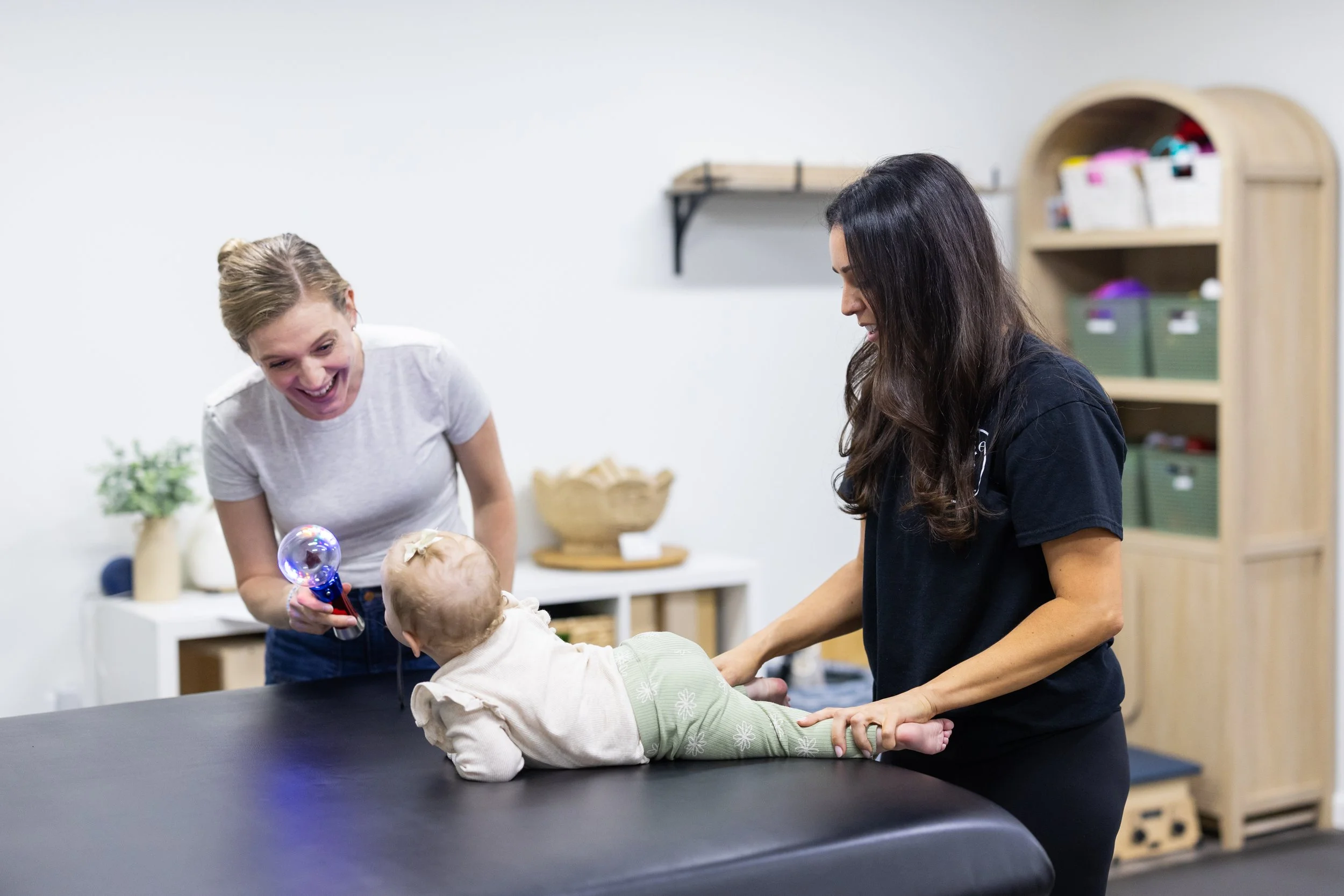
Our Services
Discover the therapy options designed to accelerate your child’s progress and fit your family’s needs.
Intensive Therapy
RISE Pediatric Intensive Therapy is an innovative approach to pediatric care, designed specifically to help children with disabilities, developmental delays, and neurodiverse conditions achieve rapid, noticeable progress. Unlike traditional weekly sessions, our intensive model delivers high-frequency, dual-discipline therapy (OT + PT) in a condensed timeframe—typically 2 to 3 hours per day, 5 days a week, for 1 to 3 weeks.
Built on the science of neuroplasticity, our intensives are tailored to each child's needs, combining Dynamic Movement Intervention (DMI), functional electrical stimulation like TASES and NISE, Whole Body Vibration (WBV), and other evidence-based techniques. The result: therapy that moves the needle in weeks, not years.
Who It’s For:
Children aged 0-10+ with cerebral palsy, motor delays, neurodivergence, sensory processing challenges, genetic syndromes, or families looking for faster, meaningful progress.
What It Looks Like:
Daily OT/PT sessions over 1–3 weeks
Fully personalized goals and activities
One-on-one or co-treat sessions
Parent-inclusive model with regular feedback
Weekly OT, PT and SLT Services
In addition to intensives, RISE offers traditional weekly Occupational, Physical and Speech/Feeding Therapy sessions to help children continue building on their progress. These sessions are ideal for families looking for ongoing support between intensives, or for children who benefit from a steady, lower-frequency routine.
Who Benefits:
Families transitioning out of an intensive
Parents preferring consistent weekly care
Children working on gradual skill development
Each weekly session is playful, targeted, and rooted in each child’s unique interests. Whether your child is working on mobility, coordination, sensory integration, or independence, our therapists deliver purposeful care in a warm, supportive environment.
Advanced Techniques We Use
At RISE, we integrate powerful, evidence-based techniques into every plan to drive faster, deeper results.
Dynamic Movement Intervention (DMI)
DMI is a neuroplasticity-driven hands-on therapy technique that uses structured exercises promote gross motor development in children with motor delays. It uses specific movements and handling techniques to make the child an active participant to stimulate neuroplasticity, helping children improve upon strength, balance, tone, postural alignment, coordination and movement patterns.
Task-Specific Electrical Stimulation (TASES)
TASES involves applying gentle electrical stimulation to targeted muscles while the child performs specific functional tasks. This combination enhances muscle activation and motor learning, helping improve strength, endurance, and movement patterns. This is especially effective for children with low tone, muscle tone or motor coordination issues.
Whole Body Vibration (WBV)
WBV is a therapy technique which use a vibration plate to provide gentle, micro vibrations while the child is in various positions to improve muscle activation, strength, bone density, balance and joint stability. Children with both low and high muscle tone can greatly benefit from WBV as it support modulating tone and increasing overall body awareness.
Non-Invasive Spinal Electrical Stimulation (NISE)
NISE uses low-level electrical currents delivered to the surface of the spine to help activate and organize neural pathways. This technique can improve trunk control, posture, and motor function in children with neurological conditions.
DIR/Floortime
DIR/Floortime is a relationship-based therapy model and approach that focuses on emotional and developmental growth through play. Therapists follow the child’s lead to build communication, social skills, and emotional connections in a natural, supportive way, while also deepening parent-child or therapist-child relationships.
Neuro-Developmental Treatment (NDT)
NDT is a hands-on approach used to improve movement and function in children with neurological conditions. It emphasizes guided, purposeful movements to enhance posture, motor control, and daily functional skills.
OSKAR Method
The OSKAR Method focuses on promoting optimal postural control and alignment, especially for children with mobility challenges. It uses specialized handling techniques and positioning strategies to improve function and independence.
Primitive Reflex Integration
Primitive Reflex Integration targets retained reflexes that can interfere with a child’s motor, sensory, or emotional development. By using specific exercises and movement patterns, therapy helps the nervous system mature, leading to improved coordination, learning, and behavior.
Trunk Orthoses (e.g., TheraTogs, Kyrios Suit, SPIO, Benik Vests)
These specialized orthotic garments provide dynamic support to improve posture, trunk stability, and alignment during movement and therapy. They can enhance body awareness, promote more efficient motor patterns, and support overall functional progress in children with neuromotor challenges.
Each of these tools is thoughtfully selected based on your child’s goals and readiness. We are happy to talk through these modalities and techniques with you to answer any questions you may have, and which will work best for your child.
RISE specializes in therapy for children with a wide range of developmental, neurological, and genetic conditions.
Every child is unique—and so is their care plan. We do not limit our therapy to a specific age range, as we work with children from birth onwards.
Common Diagnoses We Work With
Developmental Conditions
Developmental Delays
Autism Spectrum Disorder
Speech and Language Disorders
Apraxia of Speech
Feeding and Swallowing Disorders
Attention-Deficit/Hyperactivity Disorder (ADHD)
Neurological Conditions
Cerebral Palsy (CP)
Sensory Processing Disorders
Traumatic Brain Injury (TBI)
Epilepsy and Seizure Disorders
Hypotonia (low muscle tone)
HIE (hypoxic ischemic encephalopathy)
Hydrocephalus
ABI (acquired brain injury)
Spina Bifida
Genetic Conditions
Rare Genetic Disorders
Angleman’s Syndrome
Muscular Dystrophy
Down Syndrome
Prader Willi Syndrome
Retts
Even if your child doesn’t have a formal diagnosis, our team can help assess their strengths and differences, and create a therapy path that aligns with your goals and your child’s needs.








